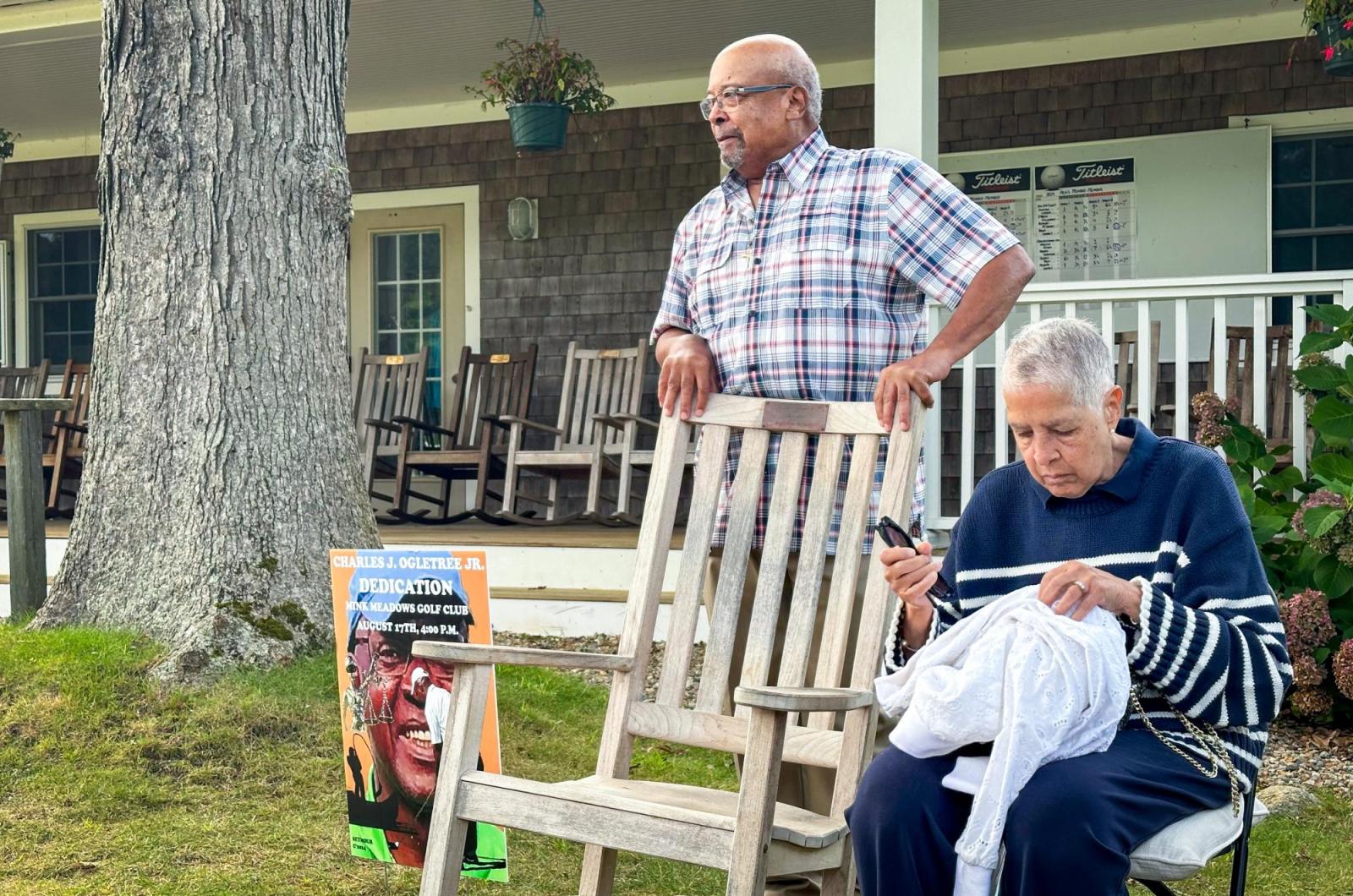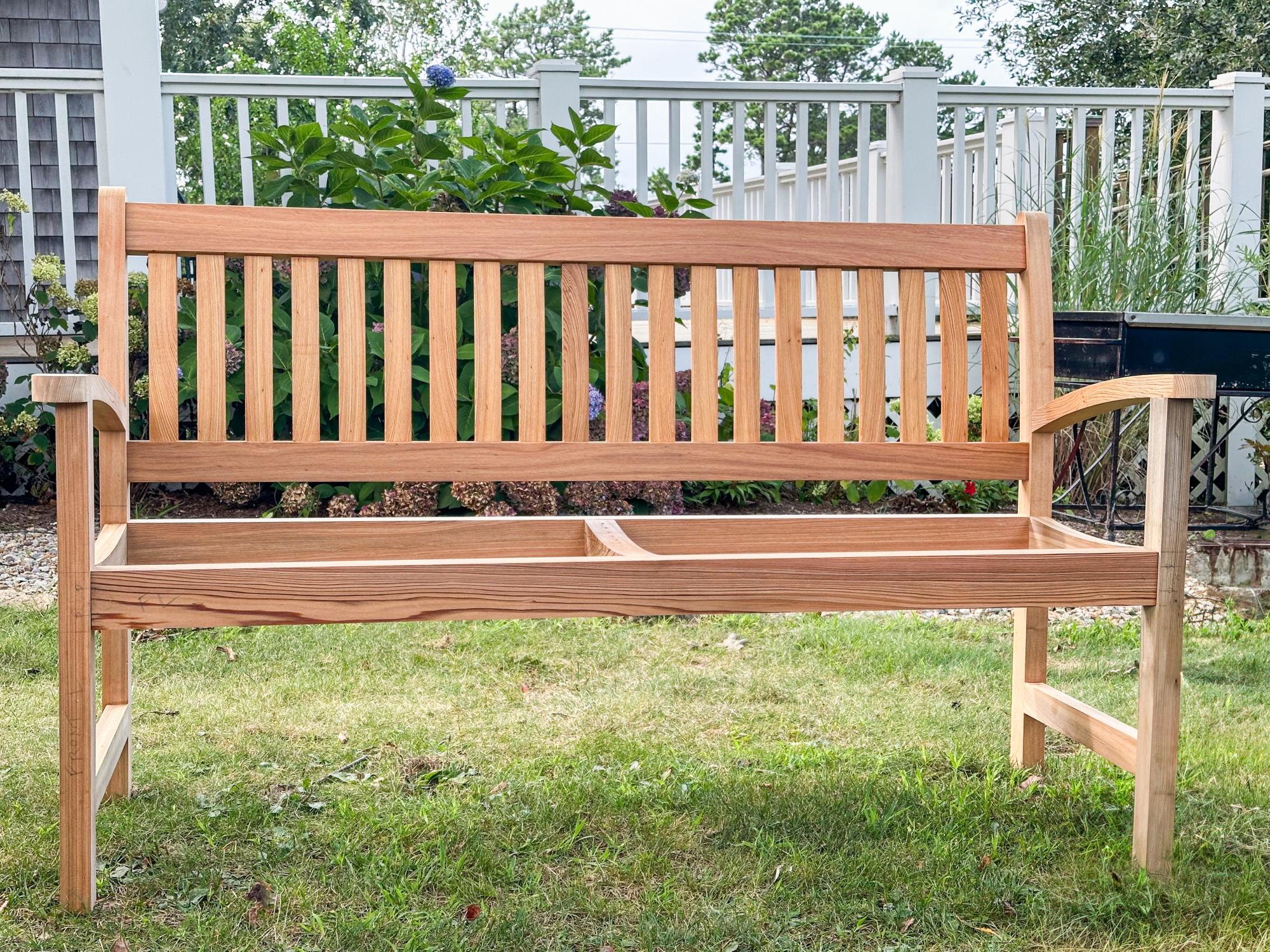On the Mink Meadow clubhouse porch a row of wooden rocking chairs bear the names of important members who have died. Although the porch is full, a new bench will welcome visitors to Mink Meadow’s first hole, one dedicated to Charles Ogletree, the renowned civil rights lawyer, Harvard professor and early-morning golfer.
Mr. Ogletree died last summer at the age of 70. On Saturday, friends gathered at Mink Meadows to remember him and dedicate the bench in his honor.
“He was a tree, wasn’t he? He epitomized the roots that held us down and kept us stable,” recalled Kim McLaurin, a fellow attorney and family friend.
“Tree’s door was always open,” Ms. McLaurin said, especially to young, Black attorneys, many of whom he mentored in his role as a professor at Harvard Law School.
Among those attorneys was a young Barack Obama, recalled William (Doc) McLaurin.
Mr. Ogletree served as counsel in such high-profile cases as Anita Hill’s testimony during Justice Clarence Thomas’s confirmation hearing, where he represented Ms. Hill. He also represented Desiree Washington in her suit against Mike Tyson, who was convicted of her rape in 1992, and was a regular guest on television programs, where he discussed civil rights issues.
“You can’t talk about social justice without talking about Charles J. Ogletree,” Mr. McLaurin said.
University of Pennsylvania professor Ken Shropshire recalled when he was a freshman at Stanford University and had doubts about his place at Stanford and his dreams of being a lawyer. He said he met Mr. Ogletree during that time, who said he wouldn’t hear of it.
“I’m going to be on your case for the rest of the quarter to make sure you know that you’re supposed to be here,” Mr. Shropshire recalled Mr. Ogletree saying.
Later in life, Mr. Shropshire, Mr. Ogletree and Mr. McLaurin golfed together in the early mornings at Mink Meadows. The bench dedication ceremony was a time to reflect on Mr. Ogletree’s legacy — and his golfing abilities.
Or inabilities, to hear Mr. Shropshire tell it.
“Charles was an excellent anchor,” Mr. Shropshire said, someone you could always count on to come in last place. “You need a worst player.”
“His damn phone never stopped ringing,” Roger Morris said. “Everybody and their brother knew Charlie and called him for advice,” even on the range.
As the memories came to a close, Mr. McLaurin offered the final words of dedication.
“I never saw this guy tired. He was tireless,” Mr. McLaurin said.
With tears in his eyes, Mr. McLaurin read a quote from a James Cleveland hymn: “We don’t feel no ways tired. We’ve come too far from where we started. Nobody said the road would be easy, but we don’t believe He brought us this far to leave us.”








Comments (1)
Comments
Comment policy »